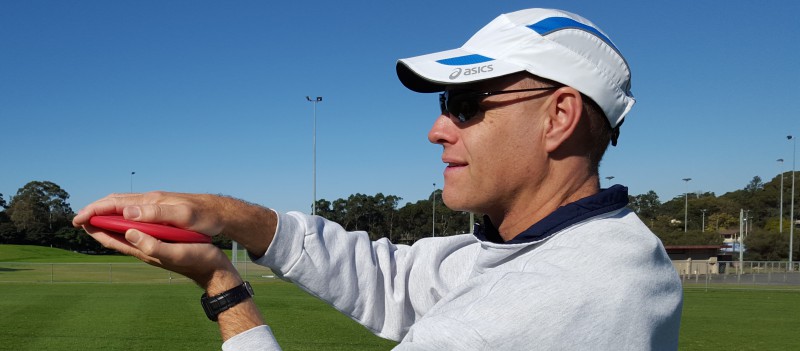Tips for Creating a Positive Sporting Environment that Builds Confidence & Encourages Growth
A key task of a youth sports coach is to create a positive and supportive environment in which the kids can thrive. Achieving the right balance between success and challenge is a crucial part of this. Ideally, coaches should aim that the kids experience consistent, but not constant, success. This article delves into the significance of this balance and provides tips on how to achieve it.
Why Consistent Success Matters
When kids experience success regularly, they start to believe in their abilities and are more willing to take risks and try new things. When athletes feel like they are improving and making progress, they are more likely to stick with the sport.
If athletes are constantly struggling and never experiencing any success, they may become discouraged and lose motivation.
Success will build belief. Failure will erode it.
Why Not Constant Success?
Constant success can lead to complacency and boredom. If success comes too easily or too frequently, athletes can stagnate and stop pushing themselves to improve. When athletes are challenged, they are forced to adapt and problem-solve, which helps them develop important skills like resilience, perseverance, and mental toughness. Athletes who rarely find themselves out of their comfort zone may miss out on these important challenges and opportunities to develop valuable life skills.
Tips for Achieving the Right Balance
Here are three tips for creating a sporting environment in which kids have consistent but not constant success:
1. Emphasise Individual Progress
Coaches and parents play a crucial role in shaping an athlete’s understanding of success, which can impact how achievable success feels and how often it is experienced. Rather than solely focusing on wins and losses, it’s important to recognize and celebrate individual progress. Winning and losing can be influenced by external factors beyond our control, such as the performance of other athletes. In contrast, individual progress is largely determined by an athlete’s efforts, practice, and dedication, which can be highly motivating and rewarding.
To promote growth, it’s important to set definitions of success that are initially within reach of the athlete and gradually increase the difficulty level. Every child is different, and their response to challenge will determine how frequently and intensely they should be challenged.
2. Adjust the Challenge Level
Tasks that are too easy will meet with apathy and indifference. Tasks that are too hard create fear and frustration. Neither is conducive to a kid’s sporting development.
Coaches can manipulate the level of challenge an athlete faces to ensure that they experience a “sweet spot” of success.
Build lots of early success into activities on the way to more difficult challenges. Initially keep activities within a young athlete’s realistic skill set. Don’t try to rush or jump ahead too quickly. Stretch, but don’t overwhelm a child. Sensible challenges that allow kids to lean – rather than leap – outside their comfort zone are the key. Set tasks at a level of desirable difficulty – which may vary from child to child.
As kids progress, success needs to be within reach, but not guaranteed – achieved consistently but not constantly.
Use “choice of challenge” where kids determine for themselves the extent of challenge. The kids can be given several suggestions as to what level of challenge they may like to attempt. (e.g. “You can choose to place the target at 1, 2 or 3 metres from you.”) Alternatively, the choices can be left open within some rough parameters. (e.g. “You can place the target anywhere between this point and this point.”)
3. Create a Supportive Environment
Aim to create an environment in which athletes feel comfortable taking risks and making mistakes. Help athletes develop a growth mindset by emphasizing the idea that abilities can be developed through hard work and dedication. This helps athletes view challenges as opportunities for growth rather than as failures.
A child’s feelings of success will be influenced by the feedback they receive from influential adults. Lots of positive, encouraging feedback will steer them away from feelings of failure and foster a sense of achievement. Coaches and parents can strategically use the power of language to construct an empowering narrative that focuses on progress and effort rather than just results.
Summary
Adults should strive to create a sporting environment in which kids have consistent but not constant success. This helps build confidence, allows for meaningful learning opportunities, and fosters a love of the sport. By focusing on individual progress, adjusting the level of challenge, and creating a positive and supportive environment, coaches can help their athletes thrive both on and off the field.
Further Read
How to Motivate Kids to Try Difficult Tasks
If this post helped you please take a moment to help others by sharing it on social media. If you want to learn more I encourage you to leave questions and comments or contact me directly.
Darren Wensor is a sports development professional, coach educator, specialist coach of young athletes, and founder of the blog coachingyoungathletes.com. Learn more about him here and connect with him on Twitter, Facebook, Linkedin, or via email. Check out Coaching Young Athletes on YouTube, the Coaching Young Athletes podcast, and the Coaching Young Athletes E-Book Series.

